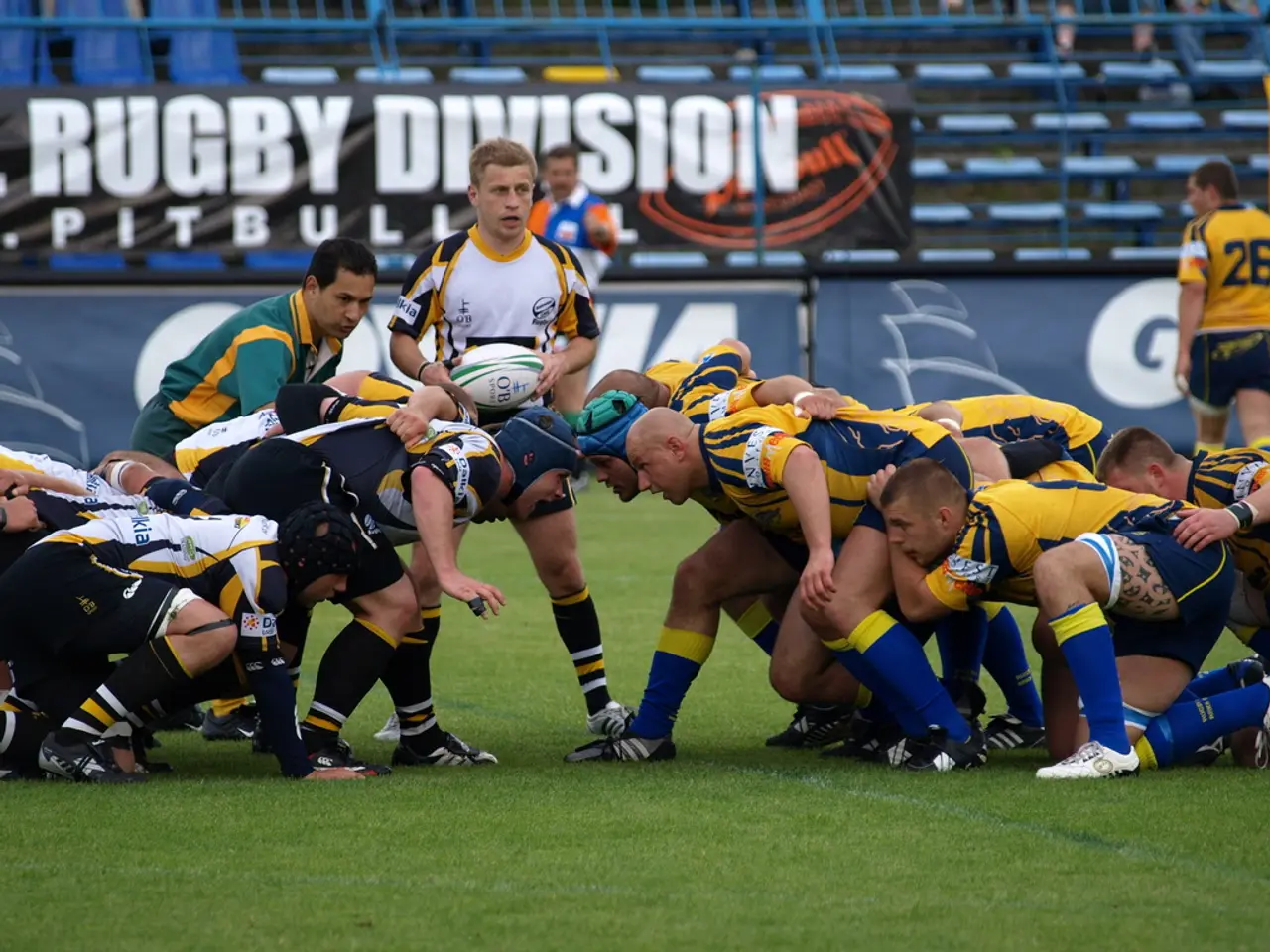Divides Between Rugby League and the Sport of the Working Class
In the heart of Australia and England, the spirit of rugby league remains a beacon for communities where the sport is a way of life. However, the current social and economic challenges facing these communities are significant.
In Australia, the instability in professional football leagues, as seen in the recent A-League crisis, poses a threat to the livelihoods of athletes and related community members. With clubs like Western United facing closure, nearly 50 top-flight player positions are at risk. This instability undermines career continuity, reduces income stability, and diminishes local community engagement around clubs.
Across the pond in England, while there is no direct economic crisis in rugby league, structural and disciplinary changes may impact the sport's accessibility and appeal within working-class areas. The Rugby Football League’s introduction of disciplinary points and the Captain’s Challenge rule could affect player retention and community engagement by altering the game’s traditional dynamics.
Beyond these immediate concerns, both countries grapple with broader challenges. Economic precariousness due to fluctuating club finances, sponsorship issues, and limited high-paying contracts beyond elite players is common. Social identity and cohesion pressures also exist, as rugby league forms a major part of community identity in working-class areas; disruptions or perceived commercialization can alienate fans and local participants.
Youth development uncertainties also loom, as pathways to professional status become less clear when clubs fold or reduce investment in academies. Limited media coverage and public investment threaten the sport’s profile and viability in these regions, compared to more commercially dominant sports and leagues.
However, there are opportunities for growth. The sport's connection to culture and identity grows stronger, becoming intertwined with local traditions and values. Encouraging participation from all walks of life is crucial, with lower ticket prices and community days helping to attract more spectators. Engaging local schools can introduce the sport to a wider audience, fostering close ties among spectators.
By bridging gaps between working-class fans and the sport, a more vibrant community can be created, uniting supporters and players from various backgrounds. Building strong ties with schools and local organizations raises awareness, while an unwavering commitment to inclusivity can help the sport thrive for generations to come.
The camaraderie on the field trickles into daily life, promoting a sense of belonging among fans. Despite the challenges, the essence of rugby league should remain accessible to those who cherish it. Embracing change, rugby league can continue to be a champion for the working class, with more diverse representation in leadership positions driving change.
In conclusion, the current challenges threaten rugby league's ability to bridge social inequality. Yet, the sport stands as a significant symbol of the working-class spirit, with its evolution reflecting deep connections to the working class. Stadiums serve as hubs of grassroots culture, and by addressing these challenges, rugby league can continue to be a force for community cohesion and economic development.
[1] Source: https://www.abc.net.au/news/2020-03-25/a-league-crisis-how-the-collapse-of-western-united-threatens/12065754 [2] Source: https://www.theguardian.com/sport/2021/apr/10/rugby-league-super-league-captains-challenge-rule-sparks-debate [3] Source: https://www.theguardian.com/football/2021/jul/15/a-league-crisis-western-united-fears-for-future-as-club-faces-collapse [4] Source: https://www.theguardian.com/football/2021/jul/24/a-league-crisis-western-united-rescued-from-collapse-by-new-investors [5] Source: https://www.abc.net.au/news/2021-02-23/rugby-league-school-workshops-promote-community-engagement/13167428
In Australia, despite the uncertainties and instability in professional football leagues, especially in light of the A-League crisis, there is a growing interest in sports like football as a means to foster community engagement and promote inclusivity.
In England, unlike the economic challenges facing professional football leagues, football may still hold significance within working-class communities. However, changes in rules and regulations, such as the Captain’s Challenge rule, could potentially impact player retention and community engagement, altering the traditional dynamics of the game.








